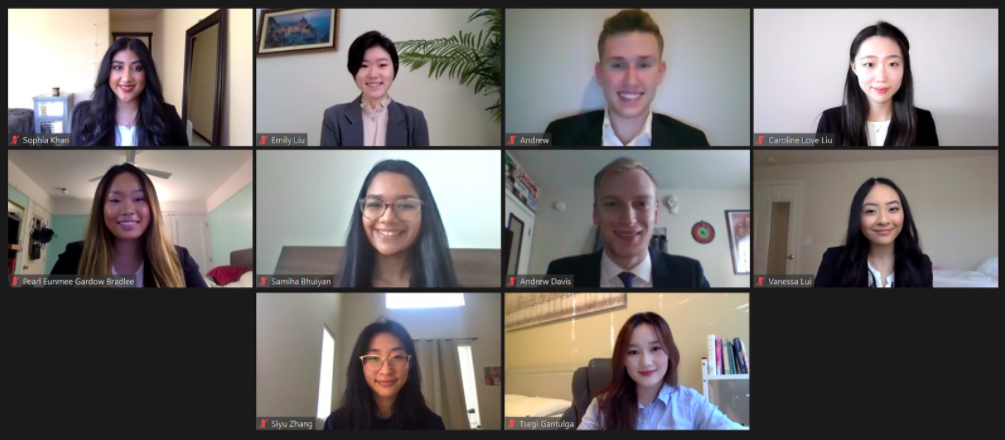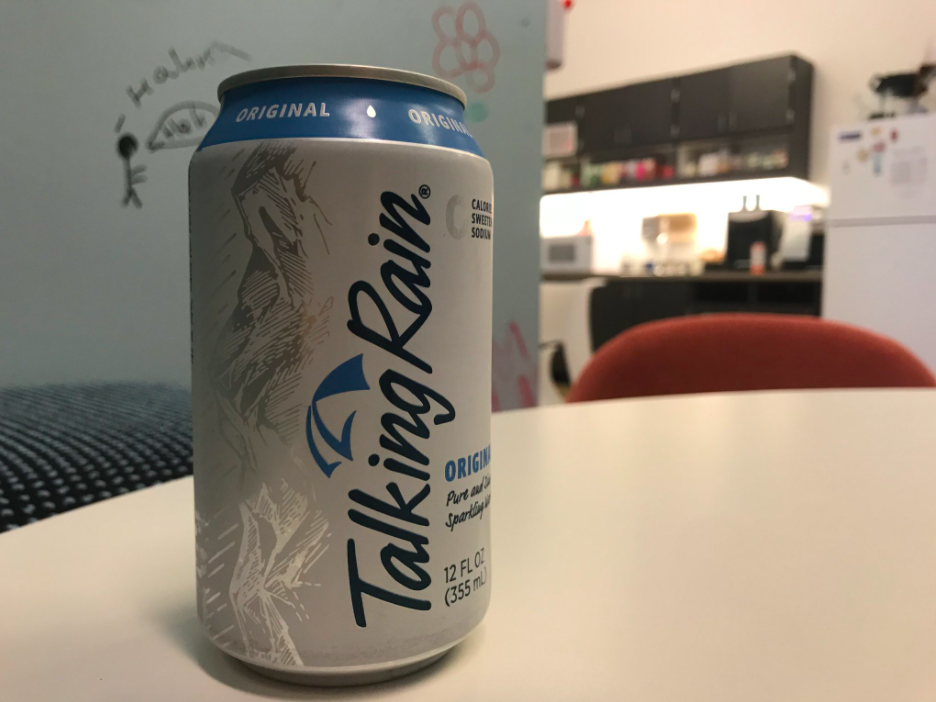Appealing to Gen Z — Foster Students Present to Talking Rain

Although students weren’t on campus, filling the halls of Paccar and Dempsey, dressed in their best professional attire and nervously practicing their pitches one last time, they were still impressing judges with their innovative solutions at the virtual Strategy Development Competition this fall. As the key experiential learning component of the Capstone Business Strategic Management course (MGMT 430), Foster partners with a local employer each quarter to build a customized business case around a problem or opportunity they’re facing in the near future. Students are asked to analyze and make recommendations on real-life strategic issues, just like they will soon be doing in their business careers.
“It’s given me a very complete, extremely realistic practice of how to solve a business problem – how to holistically diagnose an issue, relevant industries, and the consumer at hand. It was great practice also for presenting to an executive level audience.”
The case, written by Tracey Waterson and overseen by Rick McPherson, asked teams to evaluate how the local beverage company, Talking Rain, should position itself to be successful with the growing Gen Z customer segment. After hearing innovative solutions from 27 preliminary round teams and 6 finalists, two winners emerged. The winning team in Room 1 (Andrew Schmitt, Emily Liu, Seirina Zhang, Tsegi Gantulga, and Caroline Liu) recommended a product line extension of Talking Rain’s Sparkling Ice line – Sparkling Ice Herbal Infusion.

This line brings wellness and relaxation benefits to Gen Z, as well as being a cost-friendly option committed to empowering all stakeholders in the supply chain. Room 2’s winning team (Samiha Bhuiyan, Andrew Davis, Pearl Bradlee, Sophia Khan and Vanessa Lui) focused on building brand awareness and brand loyalty with the Talking Rain Essentials product line, in order to better position Talking Rain with the Gen Z demographic. Their strategy consisted of a three-pillar approach that included adapting to consumer distribution preferences, connecting with consumers through social media and engaging in person to foster consumer relationships.
The Strategy Development Competition continues to leave a lasting impact on students, and is perhaps best captured in their own words below:
“Participating in this case competition allowed me to understand a new industry, market, and company as a whole. I was able to utilize the vast resources that the Foster library provided us and do extensive market research, and in turn, gather this data to present at an executive level. In a typical class, a student like myself would stick to doing whatever is told on the rubric. However, for this case competition, [we] strived to do more than that. We tried to look at different lenses, back our claims with as much reputable data as possible, and ensure that our strategy was fool-proof. This helped me realize how valuable these skills will be as I move forward to the professional real-world. I learned that it is more than just what is written in the instructions–it is about knowing how your solutions work and why the others didn’t.”
“I feel like the Strategy Development Case Competition has helped me grow a lot as a business student and professional. I enjoyed being treated like a real consultant by a real company and the competition showed me what it takes to consult in the real world. ”
“Participating in the Strategy Development Case Competition at Foster was a challenging experience, but one that pushed me and helped me grow as both a business student and professional. This experience gave me the opportunity to apply the skills that I’ve developed at Foster to a real world situation and learn more about how strategic decisions are made within any company!”
“Getting first hand experience working with a real company and a challenge they are currently facing is one of the best ways I could have gained real-life experience. I want to pursue a career as a consultant, … this experience has given me insight into the work I would be doing.”
“What I love most about this experience was that my team fearlessly pushed each other, constantly challenged the why’s, and never stopped asking “how can we make this better?” We not only worked hard to formulate a creative solution, but also to deliver an enjoyable presentation experience to our audience. As a result, we had a lot of fun throughout the process and deepened our relationships with each other, which I am eternally grateful for.”
“It’s given me a very complete, extremely realistic practice of how to solve a business problem – how to holistically diagnose an issue, relevant industries, and the consumer at hand. It was great practice also for presenting to an executive level audience.”
